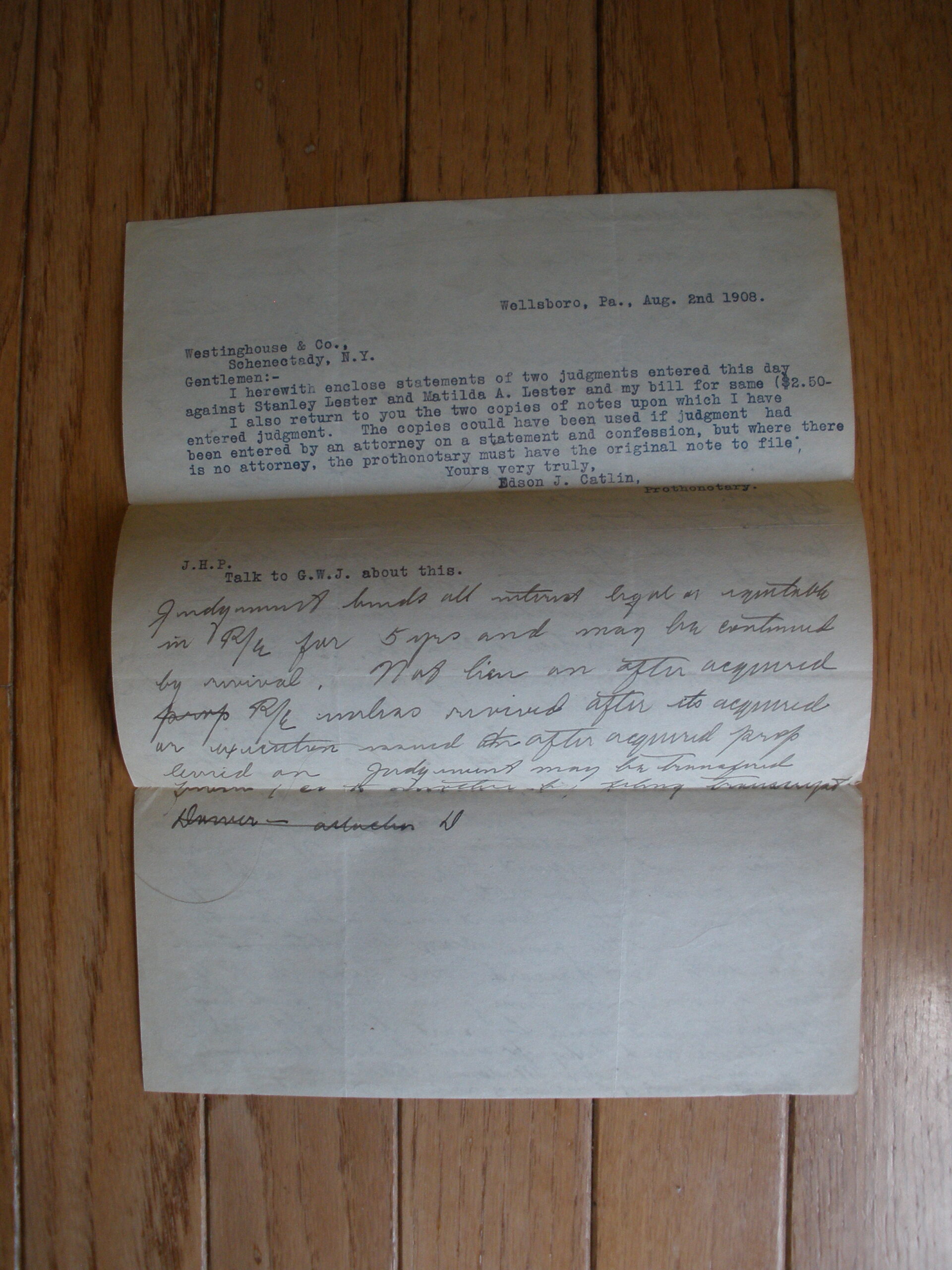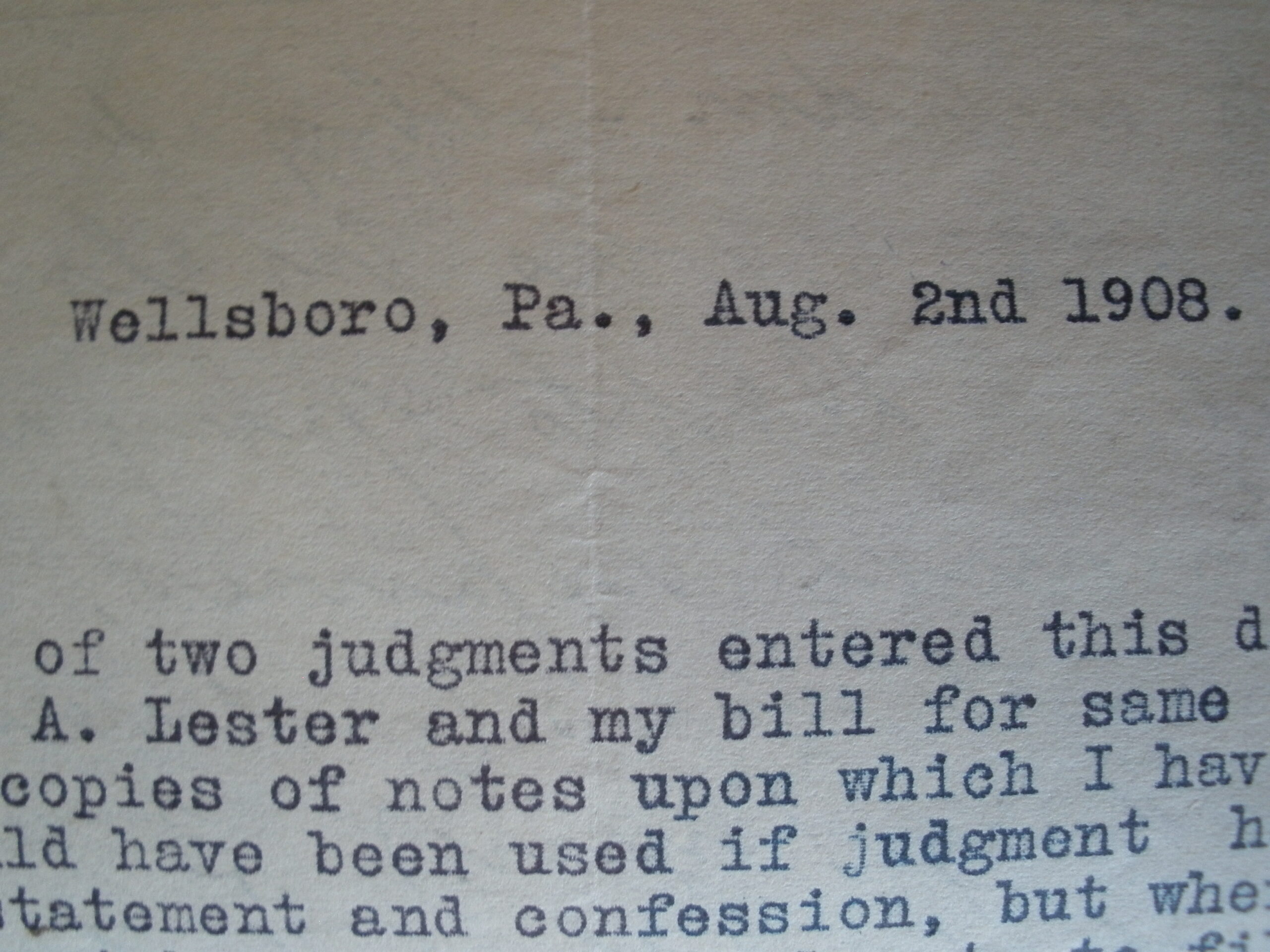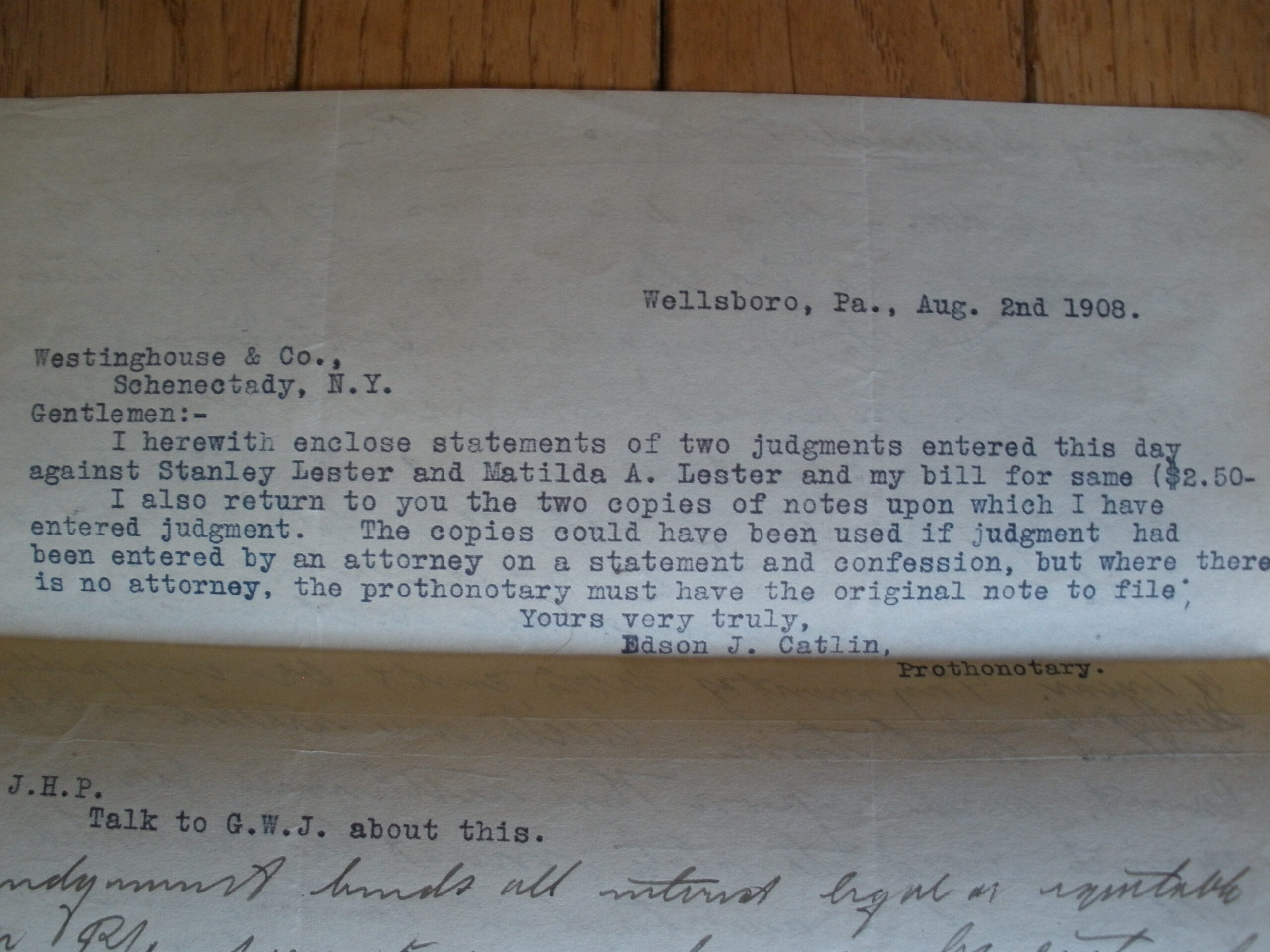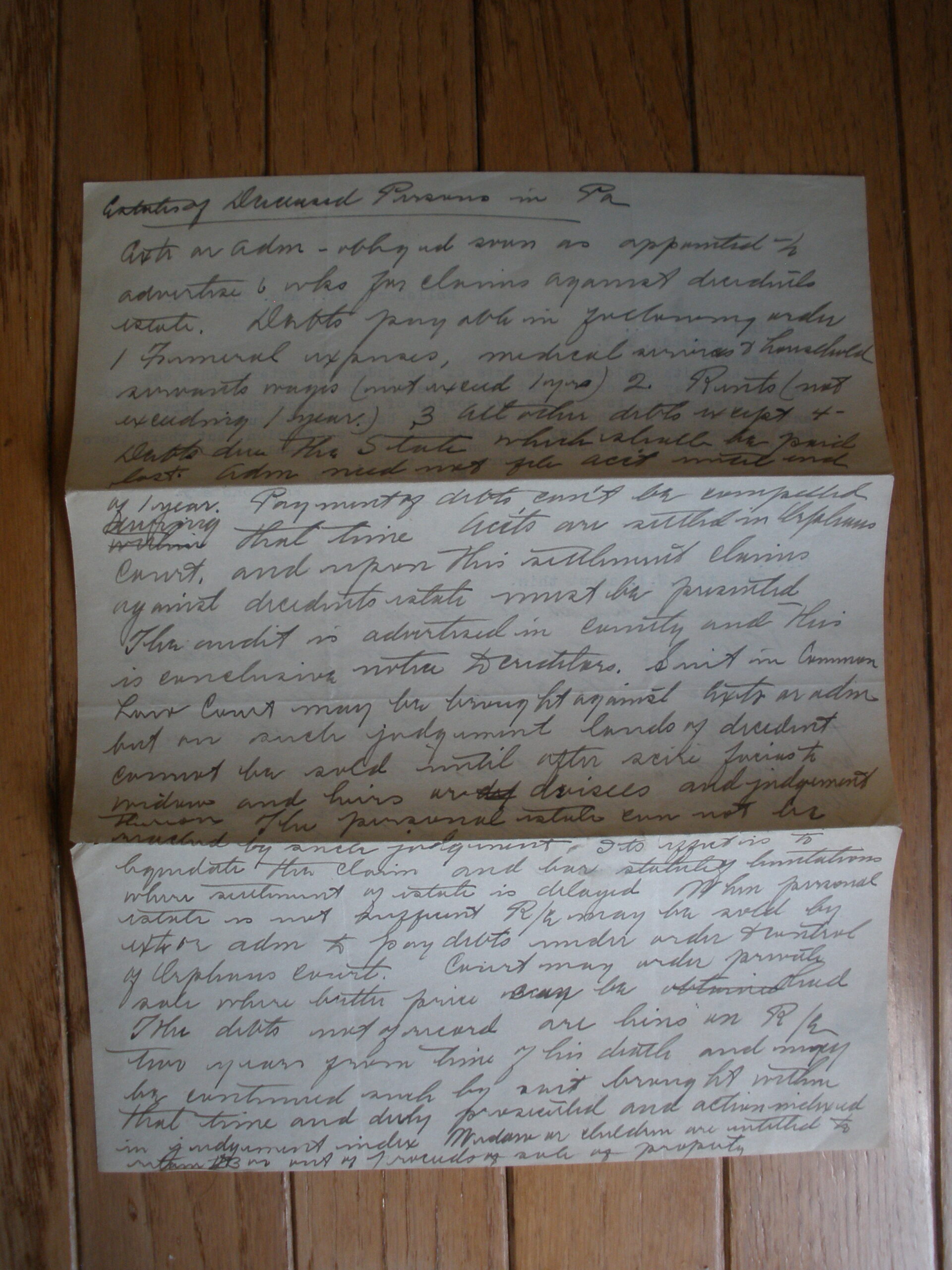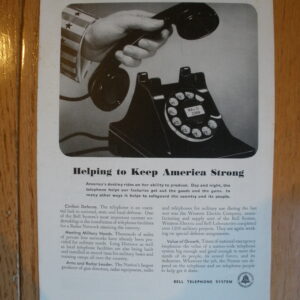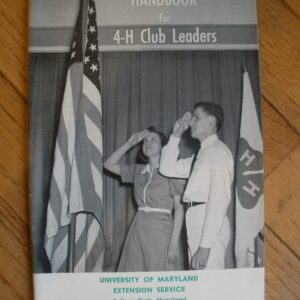For sale is an original 1908 LEGAL LETTER to Westinghouse & Company, Schenectady, NY from Edson J. Catlin, Prothonotary, Wellsboro, PA. This letter informs the Westinghouse Company of two court judgments entered upon notes. Presumably this was the company foreclosing on a promissory note due to lack of payment from the debtor who purchased electrical generation equipment on credit. The note holders for which there was a court judgement was against Stanley and Matilda Lester. An interesting legal document.
The most interesting part of this correspondence is the use of the term “prothonotary”. The word Prothonotary is Latin in origin and means “First Notary”. This word dates back to Ecclesiastical Law as being the highest administrator of the Court of Rome and the First Notary, known as the Prelate of a body of 12 Notaries. Pennsylvania still has prothonotary who is the elected civil clerk of the Court of Common Pleas and is responsible for recording all civil procedures before the court. This official signs and seals all writs and processes numerous other documents of the Court of Common Pleas.
More than any other man, George Westinghouse was responsible for the introduction and development of alternating current for light and power. With the desire to turn ideas into enterprises, he founded Westinghouse Electric and 59 other companies, eventually receiving more than 360 patents for his work. His firm faith in the alternating-current system led to the founding of the Westinghouse Electric Company in 1886, which was in bold opposition to the well-entrenched backers of the direct-current system, led by Thomas Edison. But in a span of just 10 years, the value of the alternating-current system had been convincingly demonstrated. By the turn of the century, Westinghouse’s enterprises had grown to employ over 50,000 workers. Acclaimed in his time as the “greatest living engineer,” George Westinghouse was accorded numerous honors in the U.S. and abroad, even after his death on March 12, 1914. Perhaps the finest tribute of all came from inventor Nikola Tesla, whose patents for the polyphase system of alternating current and the induction motor were acquired by Westinghouse and gave the company its early leadership in electric power developments. Westinghouse used Tesla’s system to light the World’s Columbian Exposition at Chicago in 1893.

